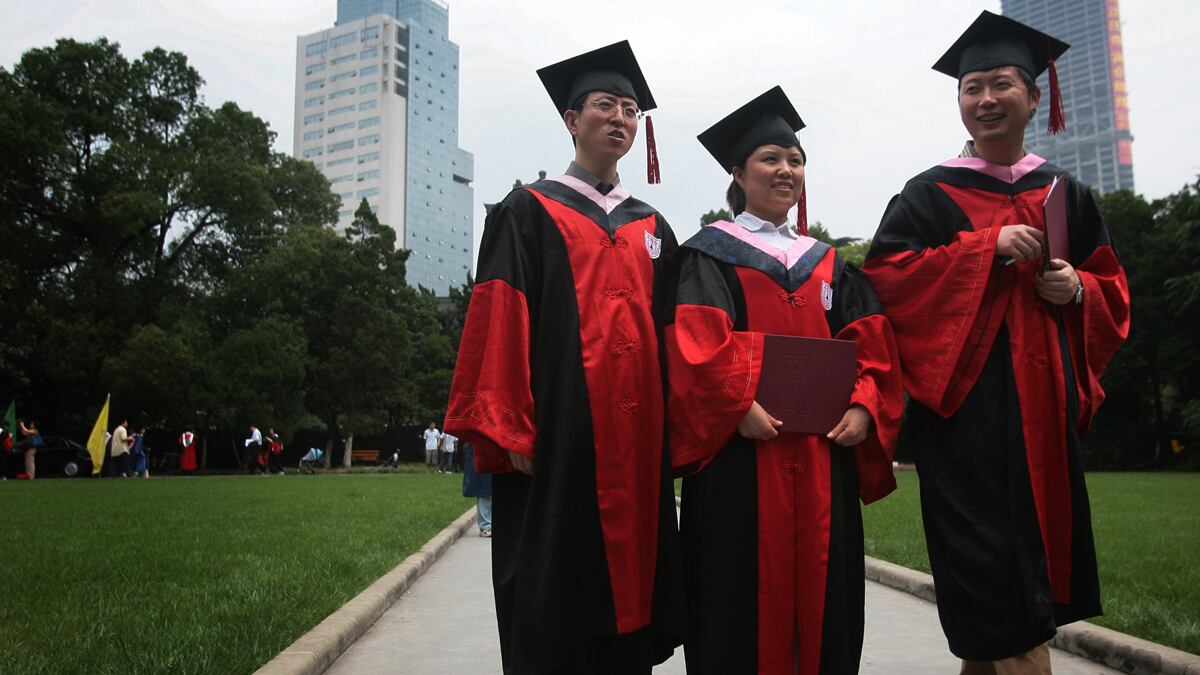New York University announced in March that it will be opening a degree-granting undergraduate university in Shanghai in 2013, which it calls “another major step in the evolution of NYU as the first global network university.” Duke University plans to build a degree-granting campus of public health and management studies in the nearby city of Kunshan in 2012, pending Chinese and board approval. In interviews and press releases, NYU and Duke both emphasized their commitment to academic freedom, and promised to maintain an openness comparable to their operations in America. Yet China remains an authoritarian state known to stifle discussion and publication of ideas it deems destabilizing. Despite their proclamations of freedom, Duke and NYU will likely have to compromise on their values in order to operate in China.
The Johns Hopkins University–Nanjing University Center for Chinese and American Studies, the best-known joint-venture program currently in existence in China, labors under this political reality. “In our country we fortunately have academic freedom, and our classes are very open. And we know that in China that is not true,” says Carolyn Townsley, who directs the Hopkins–Nanjing Center Washington, D.C., support office. In a response to a question about teaching classes on sensitive subjects like the Tiananmen Square protests in 1989, Townsley responds that “anything is pretty much fair game,” but then adds that “we are not trying to be instigators in sensitive areas. The mission of the center is to build better relations with the Chinese, so we’re not going to stir that up.”
The sensitive subjects are the ones that touch upon the legitimacy of the Communist Party. Jonathan Tsentas, who graduated from Hopkins-Nanjing in 2007 and currently works in finance in Shanghai, thinks the center was more open than he expected during his time there. On issues surrounding the mainland’s control of Taiwan, he says, “You just had to be careful not to offend anyone”—noting that the subject was not off-limits for discussion. Jim Nolt, the founding dean of the New York Institute of Technology’s university in Nanjing and now an assistant dean of management at the school, says that when a Chinese torchbearer was attacked in Paris before the Beijing Olympics in 2008, “we got a notice saying that we should not bring up that issue in class, and we shouldn’t encourage the students to talk about it, as they might get excited or agitated.”
ADVERTISEMENT
When asked about inviting people like the Dalai Lama, who spoke at Johns Hopkins in the U.S. in 2001, or if she would be willing to invite dissident artist Ai Weiwei to speak to her campus in Nanjing, Townsley responds, “We are not going to be deliberately insensitive to our partners by trying to be provocative in whatever we do at the center.”

Other professors feel stifled by China’s nebulous censorship rules. Rowena He left China in the 1990s and is currently teaching courses at Harvard University about the 1989 Tiananmen Square movement and its aftermath—a course that she could not teach in China. “The problem is, we don’t know where the line is and what the punishment would be. That’s where fear and self-censorship comes from,” she says.
Many prominent American universities are expanding their relationship with China. UC Berkeley announced on Nov. 11 that it plans to open a teaching and research facility in Shanghai; the Stanford Center in Peking University will open in 2012. Funded mostly by the Chinese, the branches are expected to be very lucrative for the universities. “Many of our American institutions are being seduced by the promise of an infusion of much-needed wealth from China,” says Orville Schell, director of the Center for U.S.-China relations at the Asia Society. “But one has to pay a price: one has to play by the rules of China’s game, and a university committed to academic freedom is bound to run into problems,” adding that they have to “either make accommodations or do without” the campus.
NYU’s president, John Sexton, promised that “students at NYU Shanghai will have unrestricted Internet access. While foreign businesses and journalists often use virtual private networks in China, no one outside the government claims to have unrestricted Internet access; content, ranging from Facebook, Twitter, and some Western newspapers to basic scholarly sources are regularly unavailable, even for those with the ability to skirt the Great Firewall, China’s censorship network.
NYU, Duke, and other foreign universities planning to operate in China realize that respecting Chinese laws also means respecting limitations on their academic and intellectual freedom . Cheng Li, a China expert at the Brookings Institution, says that the idea that Duke and NYU could maintain comparable academic freedom in China is self-deceiving. “It’s completely out of touch with China’s political reality,” he says. “They’re universities, not islands.”





